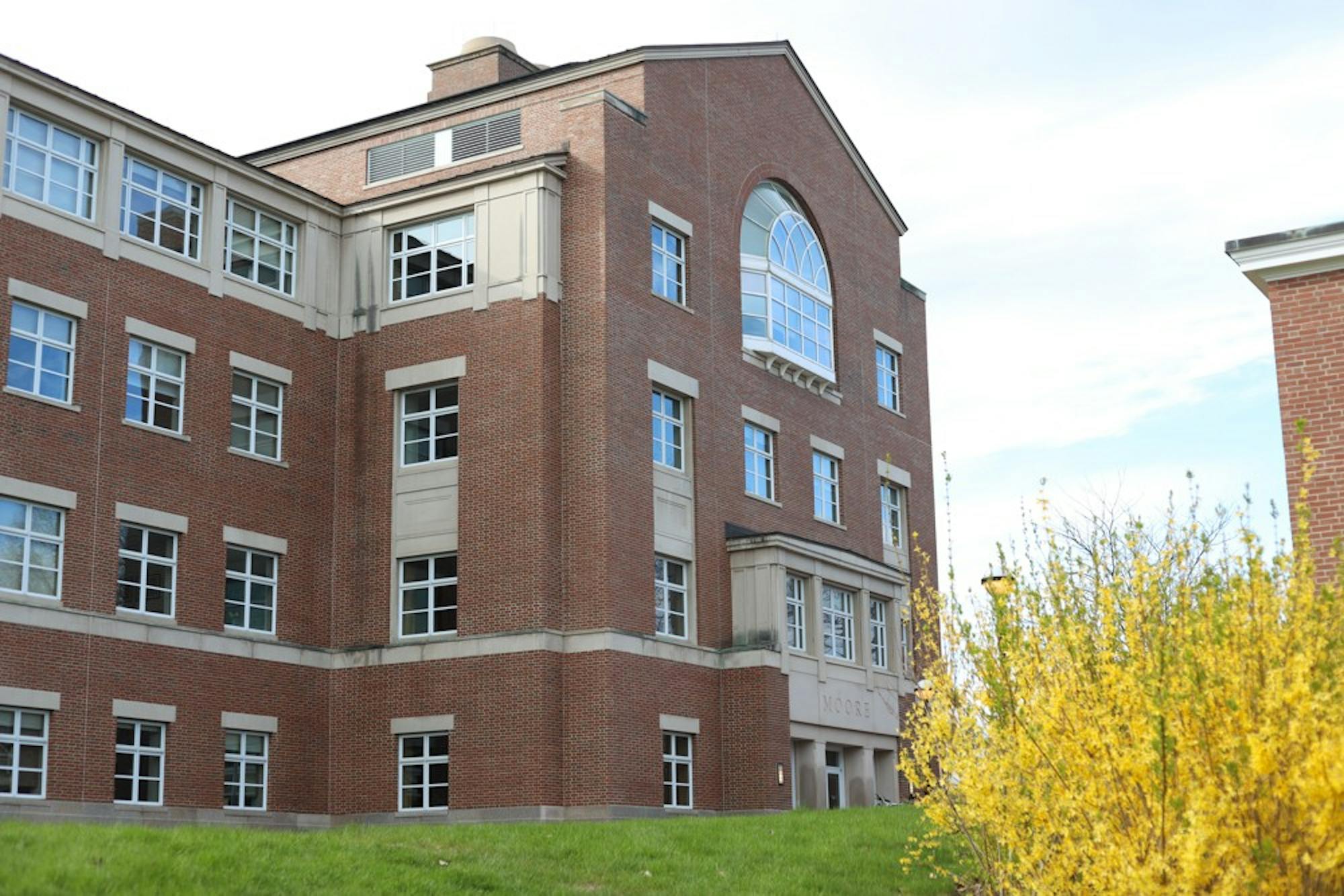On Oct. 23, George Washington University Law School professor Mary Anne Franks visited campus to deliver a lecture titled “Selling Out Free Speech” for the Susan and James Wright Center. Franks delivered her lecture in Filene Auditorium to about 100 people, Wright Center manager Christine Ellen said.
Franks — the author of “The Cult of the Constitution: Our Deadly Devotion to Guns and Free Speech” and an upcoming book titled “Fearless Speech” –– focused her remarks on how technology companies have promoted misleading ideas about free speech and the First Amendment. Franks argued that these ideas have allowed social media platforms to evade consequences for their active promotion of harmful content in pursuit of profit.
Franks began her lecture with an anecdote about the 2021 launch of Ego4D — a subsidiary of Facebook which utilized thousands of hours of first-person video data to create an interactive AI. Worryingly, Franks said, the Ego4D had not introduced any privacy safeguards.
By pushing a “new, untested, and potentially dangerous” technology on consumers, Facebook followed a time-tested pattern used by technology companies, Franks said. As predicted, Facebook faced a “few weeks of scandal” before returning to “business as usual,” she added.
“This kind of behavior isn’t just a sign of callousness, it’s a sign of confidence,” Franks said.
Franks posited why the technology industry “thrives” while few laws to regulate it have succeeded.
In her explanation, Franks said the key to tech companies’ success was an “appeal to free,” a phrase which encompasses the fact that most social media services are free to users, but also how social media platforms are tied to free speech.
“As the influence and power of big tech has continued to expand, there have been calls to rein in the industry,” Franks said. “But the power and profit of those companies hasn’t really subsided.”
As ideas shared on those platforms became a valuable commodity, the “marketplace of ideas” became more than a metaphor, Franks said.
According to Franks, the relentless pursuit of “engagement” on platforms, which drives profit, can promote the proliferation of extremist content. It is possible, she argued, to draw a line between online alt-right forums of the 1990s and alt-right support for Donald Trump in 2016. Franks argued that the Jan. 6, 2021 attack on the U.S. Capitol was partly caused by tech platforms, which she said did “little” to prevent the proliferation of hate speech.
“Tech companies, of course, did not create white supremacist ideology, but [they have] helped it grow and strengthen in pursuit of profit,” Franks said. “Whether you are holding your nose or holding a thumbs up, you are still helping violent extremism reach a wider audience.”
In order to reform the ways in which tech corporations are held responsible for promoting harmful content on their platforms, Franks recommended reforming Section 230 of the 1996 Communications Decency Act, which shields corporations from being held responsible for content on their sites.
“With very few exceptions, the First Amendment restricts the government, not private companies,” Franks said. “In fact, tech companies are exercising their own First Amendment rights as private actors.”
Osher Lifelong Learning Institute study leader Charles Buell attended the lecture and said he “appreciated” how Franks highlighted a widespread misunderstanding about the First Amendment.
“I’m appreciative of her bringing out the point that the First Amendment was written to prevent government, not private, censorship,” Buell said.
Wright Center director Susan Brison said she planned the lecture in conjunction with PHIL 9.08, “Ethics and Information Technology,” a course which examines ethical issues raised by digital technology.
Brison said Franks’ work connects directly to her vision for the Wright Center as a place where students and scholars can discuss the “most urgent moral and social challenges” of the digital age.
“I’m thrilled to be able to bring to Dartmouth some of the most transformative scholars and activists working to bring about more equitable and just use of AI and other digital technologies,” Brison said. “Professor Franks is not only a brilliant scholar, but she is also a tireless activist, dedicated to protecting our civil rights.”
In an interview after her lecture, Franks called her experience at Dartmouth “amazing,” and that she was “inspired” by the students she met.
“One of my biggest pieces of advice for students is not letting the status quo, whatever it is, define you,” Franks said.
Kent Friel ‘26 is an executive editor at The Dartmouth.




